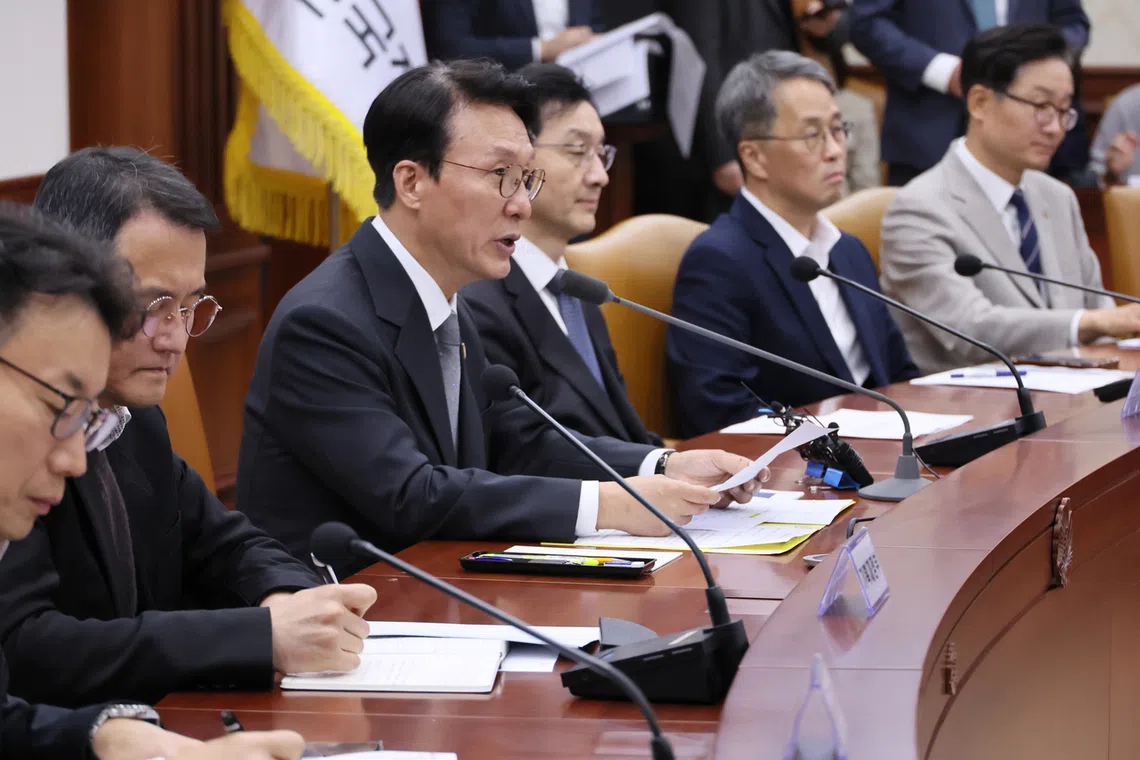South Korea Launches Sweeping Martial Law Probe Across 49 Government Entities
Seoul, South Korea – A widespread investigation targeting potential misconduct related to the December 3 martial law declaration officially commenced on November 24, sending ripples of apprehension through the nation's civil service. Spearheaded by Prime Minister Kim Min-seok’s office, a network of 48 task forces has initiated inquiries into 49 government ministries and agencies, involving 661 personnel, including 125 external experts.
Deep Dive into a Controversial Inquiry
The probes, driven by a central task force led by the Prime Minister's Office, aim to take disciplinary measures against officials implicated in the martial law declaration, an action controversially enacted by former President Yoon Suk Yeol. This initiative comes amidst reported delays in a separate special counsel's investigation into the same matter.
The scope of the investigation is extensive, covering a 10-month period – six months prior to and four months after the Dec 3 declaration. Key deadlines have been set: task forces are to define their investigation scope by December 12, complete their reviews by the end of January, and announce follow-up measures by February 13, just before the Lunar New Year holiday.
Civil Service Anxiety and Opposition Backlash
The launch has ignited significant unease among government officials. Many fear the pressure for quick results could lead to the creation of scapegoats, potentially pushing the civil service into a more defensive and risk-averse posture. Adding to the tension, the main opposition People Power Party has vehemently criticized the initiative, establishing a hotline for public officials to report what it terms “unconstitutional surveillance and illegal acts.”
Prime Minister Kim Min-seok, acknowledging these mounting concerns, emphasized the crucial importance of “principle and restraint” during the investigations. Addressing working-level officials from all task forces on November 24, he stated that activities must be “limited to intentional and active conduct directly related to the insurrection” and conducted swiftly, non-publicly, and within legal frameworks that respect human rights. He also warned that any task force failing to exercise restraint would be “addressed immediately.”
Key Agencies Under Scrutiny and New Concerns
Among the 49 entities, 12 agencies have been designated for intensive inspection. These include high-profile bodies such as the Joint Chiefs of Staff, the prosecution, the police, and the Ministries of Foreign Affairs, National Defense, Economy and Finance, Justice, Interior and Safety, and Culture, Sports and Tourism.
The Defense Ministry, for instance, has assembled a 53-person task force led by Defense Minister Ahn Gyu-back. Acting spokesperson Lee Kyung-ho confirmed on November 24 that the ministry plans to identify and investigate areas not yet covered by existing probes or the special counsel. Furthermore, an “Insurrection Reporting Center” will be operational across ministries until December 12 to accept additional tip-offs, with investigations strictly adhering to regulatory authority regarding access to government computers and documents.
Worries within the civil service are exacerbated by historical precedents. Memories linger from the Moon Jae-in administration, when broad internal investigations often scrutinized officials who had merely followed administrative directives, irrespective of their direct link to alleged misconduct. The seizure of government phones and questioning of Foreign Ministry officials about compliance during that era fostered a culture of caution, making officials hesitant to take proactive initiatives.
Despite the Prime Minister's assurances, the current investigation's unfolding methodology has amplified concerns. Early announcements from the Prime Minister's Office about the use of digital forensics and the possibility of disciplinary action for officials refusing to submit personal phones have heightened anxiety. Additionally, the composition of the task force's external advisory panel – comprising four experts in military, police, legal, and personnel fields – has drawn criticism, as all are widely perceived to be aligned with the ruling Democratic Party.
Impact on Diplomacy and Cautious Optimism
At the Foreign Ministry, the timing of the probe is particularly disruptive. With ambassadorial postings tied to senior headquarters appointments and approximately 40 of 172 overseas missions lacking ambassadors or consuls general since June due to previous recalls, officials fear further delays in personnel decisions. This could prolong the existing diplomatic vacuum.
However, amidst the widespread apprehension, some anonymous officials expressed cautious optimism to The Korea Herald. They hope this review will remain narrowly focused on actions directly linked to the martial law declaration, avoiding the broad, open-ended scrutiny that characterized earlier administrations.

